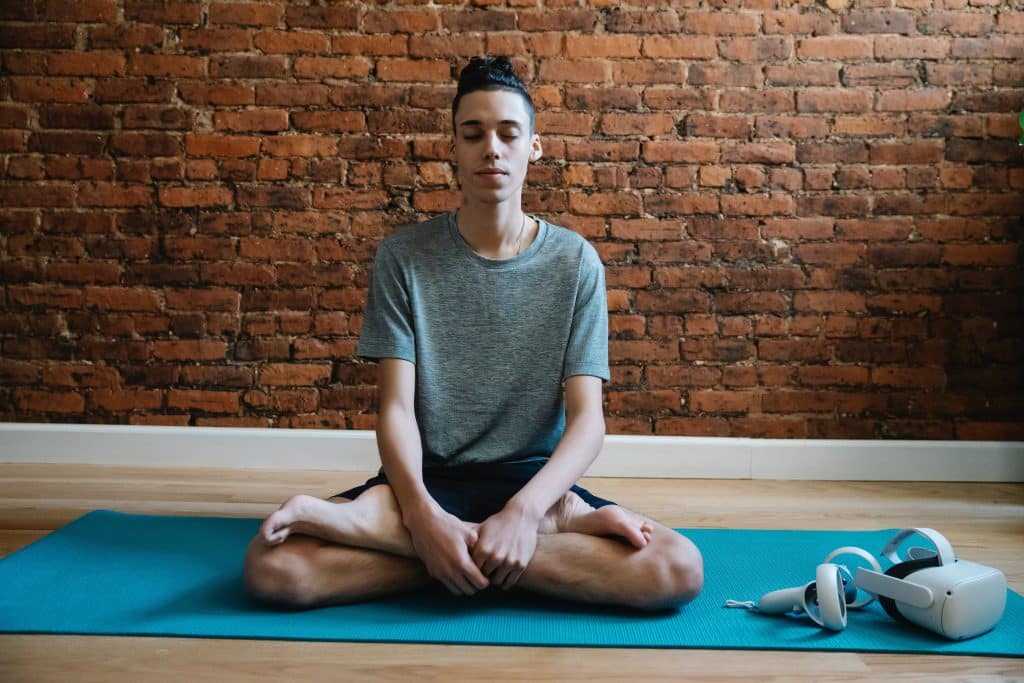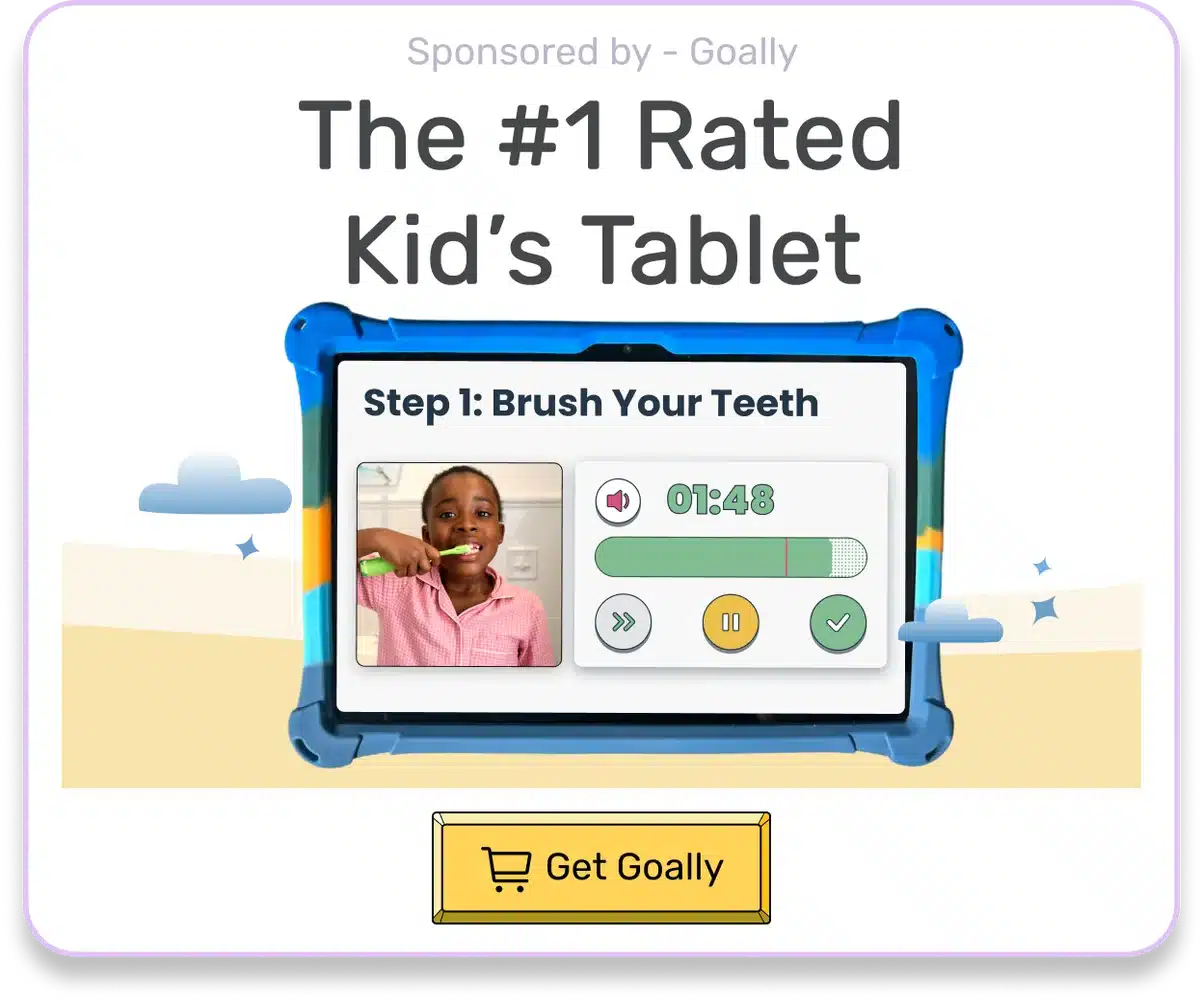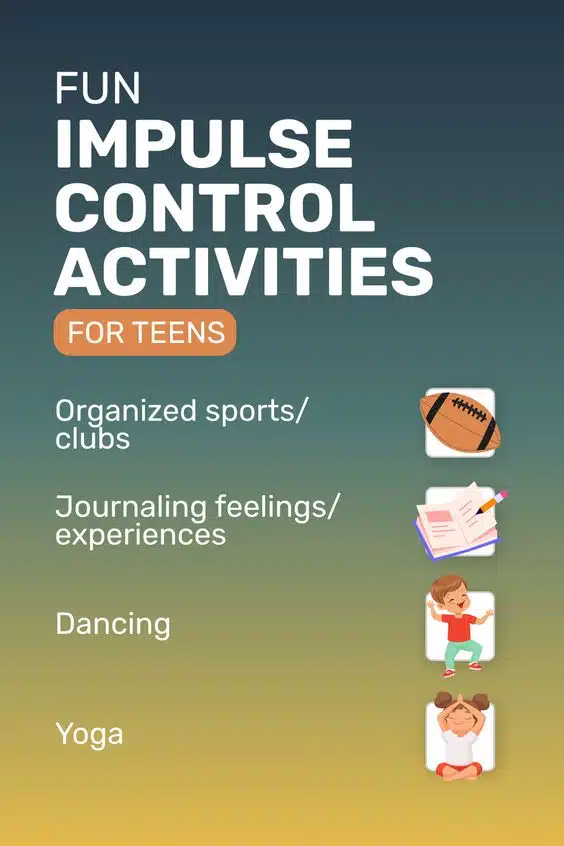In a groundbreaking development, researchers have unveiled a revolutionary list of 10 fun and engaging impulse control activities specifically designed for neurodivergent teens. This game-changing discovery comes as a new study reveals that only a subset of teens who struggle with excessive impulsive behavior go on to develop further problems. With the constant distractions of the digital age, these activities offer a much-needed lifeline, blending entertainment with vital skill-building in a captivating way. As experts hail this innovative approach as a potential solution for millions of families, the unveiling of these tailored impulse control activities promises to empower teens with the tools they need to stay focused and thrive.
Table of Contents
Mindful Breathing Exercises
Mindful breathing exercises are a simple yet effective way to kickstart impulse control. Encourage your teen to take slow, deep breaths while focusing on the sensation of the air entering and leaving their body. Not only does this promote relaxation, but it also improves concentration and helps manage impulsive urges with the Goally learning tablet.
Integrating mindfulness into your teen’s daily routine can work wonders for their mental health and emotional well-being. They will be better equipped to handle impulsivity and make thoughtful decisions as they become more in tune with their thoughts and feelings.

The Freeze Game
Transform Impulse Control Into a Fun Challenge With the Freeze Game.
Play some upbeat music and have your teen dance until the music suddenly stops. When it stops, they need to “freeze” in place. This game fosters self-control and enhances the ability to think before reacting.
The Freeze Game is a lively activity and an opportunity for your teen to learn about self-discipline and patience. By listening carefully for the music to stop and then freezing, they are actively practicing impulse control in an exhilarating environment.
Role-Playing Scenarios
Create Role-Playing Scenarios Where Your Teen Faces Situations Requiring Impulse Control
Please encourage them to practice responding in a calm and collected manner. This interactive activity, easily incorporated into Goally’s apps, boosts their problem-solving skills and nurtures empathy for others. Role-playing scenarios can range from navigating social settings to dealing with frustrations or disputes. By taking on different roles and perspectives, your teen will gain valuable insights and develop empathy, improving their overall social skills and emotional intelligence.
Yoga for Teens: Fun Impulse Control Activities for Teens
Introduce your teen to yoga – an excellent way to develop both physical and emotional self-control. With regular practice, yoga helps regulate emotions, increases focus, and strengthens impulse control.
Yoga offers many physical and mental health benefits, making it ideal for holistic development. Not only will your teen enjoy the physical challenge, but the meditative aspects of yoga can also help them cultivate a calm and focused mind, further improving their impulse control.

Read More: Goally for Teens
The Marshmallow Test
Inspired by the classic Stanford experiment, the Marshmallow Test challenges your teen’s self-control. Place a marshmallow (or their favorite treat) in front of them, and offer them a reward if they can resist eating it for a set amount of time. This fun test engages their impulse control in a tangible way.
The Marshmallow Test is a fantastic way to teach your teen delayed gratification, an essential life skill. By resisting the immediate temptation, they learn the value of patience and persistence in achieving long-term goals.
Journaling: Fun Impulse Control Activity for Teens
Encourage your teen to express their thoughts and emotions through journaling. Writing down feelings can help them reflect on their actions and identify patterns of impulsive behavior. It’s a creative and introspective tool for improving self-regulation, complementing Goally’s suite of tools.
Goally | The Safest Tablet for Kids

Journaling can also be an outlet for stress and anxiety, which can contribute to impulsive behaviors. Encourage your teen to write regularly; they may discover key insights into their emotions, helping them gain better control over their reactions and decision-making.
Puzzles and Brain Teasers
Puzzles and brain teasers are excellent ways to engage your teen’s cognitive skills. These activities require focus, patience, and strategic thinking, which are crucial components of impulse control.
In addition to honing their logical and problem-solving abilities, puzzles and brain teasers can also help improve memory and concentration. By working through challenging tasks, your teen will develop a greater sense of discipline and mental fortitude, both of which contribute to better impulse control.
Outdoor Exploration
Nature provides a calming environment for teens to practice impulse control. Organize outdoor activities like hiking or geocaching that require teamwork, problem-solving, and self-control, all while fostering a love for the great outdoors.

Read more: How to Control Impulsive Behavior in a Child
Outdoor Exploration Encourages Your Teen To Step Away From Their Screens and Experience the World Around Them
Being in nature reduces stress, boosts mood, and promotes overall well-being. By participating in outdoor activities, your teen will develop essential life skills and enhance their impulse control.
The Balloon Challenge: Fun Impulse Control Activities for Teens
Inflate a balloon and challenge your teen to keep it afloat without holding it. This activity demands attention, focus, and motor control, making it an entertaining way to practice impulse management.
The Balloon Challenge is a fun physical activity and a great exercise in perseverance and coordination. As your teen works hard to keep the balloon afloat, they develop the mental resilience needed to face challenges and your teen can have fun while practicing impulse control.
Meditation and Visualization
Introduce your teen to meditation and visualization techniques. Please encourage them to find a quiet space, close their eyes, and vividly imagine situations where they successfully control their impulses. This practice helps develop internal self-regulation and a sense of accomplishment.
Meditation and visualization can help your teen build mental strength and resilience. By visualizing success in overcoming impulsive behaviors, they can create a positive feedback loop that reinforces their impulse control skills and boosts their self-confidence.
Tired of Emotional Meltdowns?
Goally’s Mood Tuner app has activities for kids with BIG emotions. Teach kids how to tune their mood with Goally. See fewer meltdowns.
The Mood Tuner app encourages kids to look inwards and identify their feelings, helping them understand what’s going on inside. Once they’ve recognized their emotions, they can choose from a 20+ activities designed to help them self-regulate and find their balance.

And there you have it – 10 Fun Impulse Control Activities for Teens that are both engaging and effective! By incorporating these activities into your teen’s routine, you’ll help them develop essential self-regulation skills while having a blast. Remember, practice and consistency are key, so keep things fresh and exciting by rotating through these activities. Watch as your neurodivergent teen grows in confidence, focus, and self-control, ready to tackle life’s challenges head-on. With Goally by your side, happy experimenting!
FAQ’s About Impulse Control Activities for Teens
What are impulse control activities for teens? Impulse control activities are exercises or games designed to help teens manage their impulses, improve decision-making, and develop better self-control. Why are impulse control activities important for teens? These activities can help teens develop essential life skills like patience, discipline, and self-control, which are crucial for their personal and academic success. Can impulse control activities help teens with ADHD? Yes, impulse control activities can be particularly beneficial for teens with ADHD, helping them manage their impulses and improve their focus. What are some examples of impulse control activities for teens? Examples include mindfulness exercises, role-playing scenarios, board games that require strategic thinking, and physical activities that require patience and control. How often should teens engage in impulse control activities? Ideally, teens should engage in impulse control activities regularly, as consistent practice can lead to better self-control over time.
This post was originally published on 04/07/2023. It was updated on 02/01/2024.
Emily is a seasoned blog writer for Goally, leveraging her extensive background in child psychology and special education to provide valuable insights and resources for parents. Her commitment to understanding and addressing the unique needs of these children, combined with her expertise in educational strategies, makes her a credible and empathetic voice for families.






